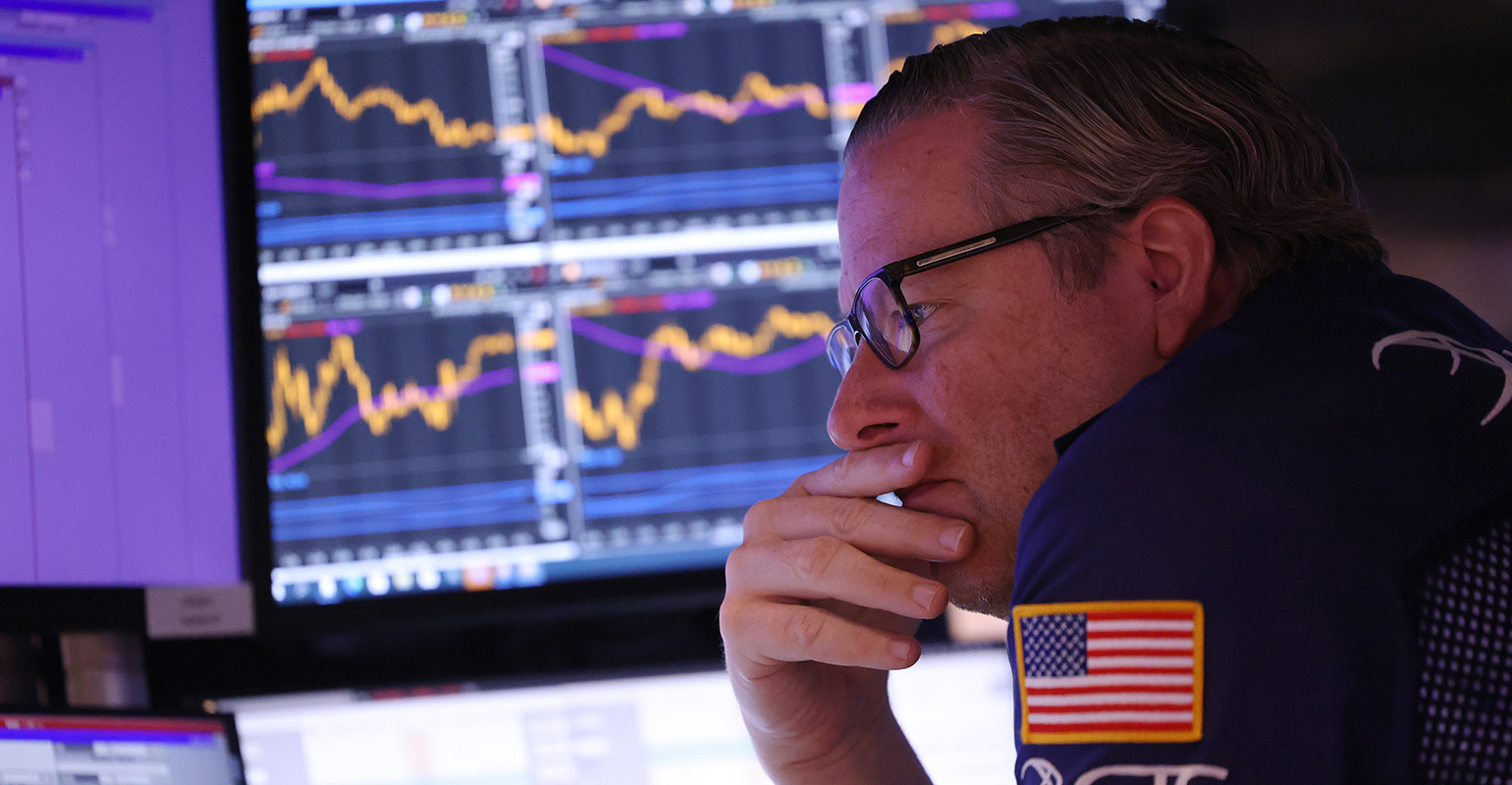(Bloomberg) — On days like Monday's dramatic selloff, which capped a three-week loss of $6.4 trillion in global wealth, personal finance experts usually have the same advice for cautious retail investors:
Breath. Don't overreact. Take a moment to evaluate your portfolio. And depending on your situation, maybe it's time to put in some new money.
However, it is important to try to understand what is happening and why. Because times like these, when stock markets around the globe fall sharply, will surely come again. There is usually a decline of 10% or more every two years, and a decline of 25% or more every seven years, according to Zhu Hann Ng, founder and chief executive of Tradeview Capital, a fund manager in Kuala Lumpur.
“It's a good lesson and a wake-up call, to understand that irrational exuberance doesn't last,” Hann said.
In recent days, financial markets have shifted from safe to scary as gloomy milestones piled up: shares of SoftBank Group Corp. fell the most since going public in 1998 on Monday. Japan's Topix fell 12%, its worst day since 1987. Taiwan's benchmark stock index fell by a record. Bets on artificial intelligence and computer chips, once seen as safe, were reversed. Meanwhile, the American economy seemed to be faltering.
As markets recovered on Tuesday, experts attributed Monday's meltdown to overreaction, even as many investors still faced painful losses.
It can be difficult to understand them all.
What just happened?
People and institutions have made big bets on various assets, including big tech companies making forays into AI. When things change, such as the prospect of the US economy deteriorating or the Bank of Japan moving to raise interest rates, positions have to be moved and some have to sell. Selling tends to lead to more selling, especially when uncertainty swirls about issues like the upcoming US election or tensions in the Middle East.
“It's hard to know what the stress point was for selling,” said Rob Almeida, global investment strategist and portfolio manager at Boston-based MFS Investment Management. In fact, many investors had made big bets using borrowed money, he said, and many tried to exit at the same time.
Risk review
The sudden downturn can be a good time to review your investments and consider whether you need to move things around. Are you still comfortable holding some stocks or funds at their current prices? Has your time horizon or ability to take losses – whether long or short – changed?
If you made bets using borrowed money, you may want to use the return to reduce the leverage in your account and stay diversified, for example with bonds, said Dev Ashar, an investment adviser at Citi Private Bank.
“It depends on the risk of concentration. We can all fall in love with anything AI, but if it dominates your portfolio, you can face pretty big draws,” said Melbourne-based Ned Bell, chief investment officer, Bell Asset Management. “When you start getting any hint of bad news, like Nvidia possibly delaying one of its chips, you have no safety net.”
The general rule of thumb is to look to rotate into areas of the market that have underperformed, such as global small- and mid-caps, he said.
Bargain hunting
If you have spare cash to invest, now might be a good time. “You may be able to pick out undervalued companies,” said Alex Joiner, chief economist at Australian money manager IFM Investors.
Elsewhere, the trading desk at the country's second-biggest superannuation fund in Brisbane has put in some “pretty long hours” in recent days. Australian Retirement Trust chief economist Brian Parker said the pension fund, which manages about A$300 billion ($195 billion) in savings, bought into the decline in Japanese and eurozone shares while selling government bonds.
“If you have some spare cash, does that mean there are some potential buying opportunities on the horizon? Yes, most likely,” Parker said.
Markets in sight
“The pullback has created some good opportunities, particularly in equities,” Guy Stear, head of developed markets strategy at Amundi Investment Institute, wrote in a note. Japan and some European markets look attractive after giving up earnings for the year even as revenue so far has met or exceeded expectations, he added.
Zhikai Chen, head of Asian and global emerging markets equities at BNP Paribas Asset Management, said Chinese valuations are cheap and that the Asian technology equipment sector has good growth.
The Way Forward
Things either calm down or they don't. But as stocks rallied, many experts said Monday's sell-off was unnecessary, while warning that markets could remain volatile for a while.
“The market reaction was a bit extreme yesterday,” said Rupal Agarwal, Asia quantitative strategist at Sanford C. Bernstein. There is still uncertainty about whether a recession is coming, whether companies can maintain their profits and how things will develop in the Middle East, she said.
It is worth noting that many economists and investment leaders say that the US economy is still strong and poised to avoid falling into a recession in the near term.
Hann, the fund manager in Kuala Lumpur, said the good returns in Malaysian stocks had set him up to take some time off in October.
“Now, all of a sudden, it threw things into disarray,” he said. “But I should still be on track for the holidays if the market stabilizes.”

